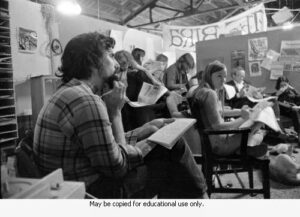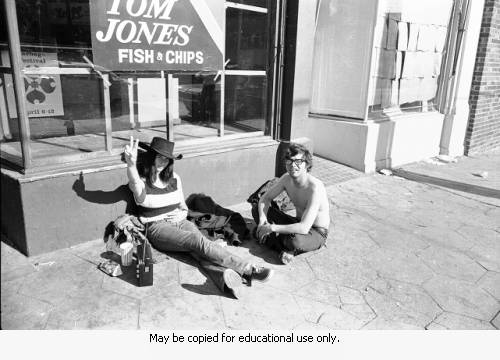Birth of the Great Speckled Bird
Atlanta in the mid-1960s was a crossroads and destination for young people working in the Civil Rights Movement, seeking higher education at the city’s many colleges and universities, or looking to experience life in a big city’s hip, countercultural scene. Thousands of teens and twenty-somethings from across the country passed through or landed in Atlanta. With its well-established base of operations for many civil rights organizations and a thriving countercultural neighborhood call the Strip, centered around the intersection of Peachtree and 10th Streets, new arrivals and longer-term residents with common interests had little difficulty finding each other. But it was hard to stay informed about all the things of importance and interest around the city, country, and world because Atlanta’s established newspapers and media outlets did not cover the news that many of these young people thought important, particularly about civil rights and growing opposition to the Vietnam War.
In the fall of 1967, a small group of people wanting to effect changes in society and in themselves and others conceived the idea of creating a newspaper, the Great Speckled Bird, that would cover the many subjects and perspectives too often ignored by the city’s other news outlets, including civil rights, women’s liberation, lesbian and gay liberation, anti-war activism, as well as urban development, the environment, labor struggles, international politics and freedom struggles, and countercultural arts and entertainment. The Bird, as the paper was known, was one of hundreds of so-called underground newspapers published around the country and world, yet it was unique in its high-quality graphic design and analysis as well as in its equal attention to politics and culture. The paper was published between 1968-1976 and was emblematic of the era’s desire for and commitment to social change. Although published for only eight years, the Bird had a significant and lasting impact on those that produced and read the paper as well as on those who would continue to fight for and write about freedom, equality, and justice in the decades after the Bird ceased publication.


